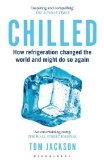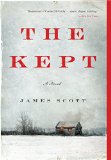Summary | Excerpt | Reviews | Read-Alikes | Genres & Themes | Author Bio

A True Story
by Gavin WeightmanA remarkable book about the long-forgotten North American natural ice industry, which harvested ice and shipped it from Boston to the Carribean, London and even to Calcutta.
In the tradition of Cod by Mark Kurlansky, a remarkable book about a long-forgotten historical phenomenon that changed our world -- the rise and fall of the natural ice industry in nineteenth-century North America.
On February 13, 1806, the brig Favorite left Boston harbor bound for the Caribbean island of Martinique, with a cargo that few imagined would survive the month-long sea voyage. Packed in hay in the hold were large chunks of ice harvested from a frozen Massachusetts lake. This was the first venture of a young Boston merchant, Frederic Tudor, who imagined he could make a fortune selling ice to tropical countries.
Ridiculed from the outset by fellow merchants, Tudor endured years of hardship before he was to fulfill his dream. Over 30 years, he and his rivals extended the "frozen water trade" to Cuba, Charleston, New Orleans, New York, and London, and finally to Calcutta, when in 1833 more than one hundred tons of ice survived a four-month voyage of 16,000 miles with two crossings of the Equator.
Tudor not only made a fortune, he founded a huge industry, which each winter employed thousands of men and horses to harvest millions of tons of ice. Thanks to his astonishing enterprise, iced drinks, chilled beer, and homemade ice cream became essential to the American way of life, and cooled the brows of communities throughout the world long before artificial refrigeration -- after which the frozen-water trade melted away.
In this fascinating book, Gavin Weightman reveals the forgotten story of America's vast natural ice trade, which revolutionized domestic life for millions of people.

If you liked The Frozen Water Trade, try these:

by Tom Jackson
Published 2016
The refrigerator may seem mundane nowadays, but it is one of the wonders of twentieth-century science - lifesaver, food preserver, social liberator.

by James Scott
Published 2015
A scorching portrait of guilt and lost innocence, atonement and retribution, resilience and sacrifice, pregnant obsession and primal adolescence, The Kept is told with deep compassion and startling originality, and introduces James Scott as a major new literary voice.